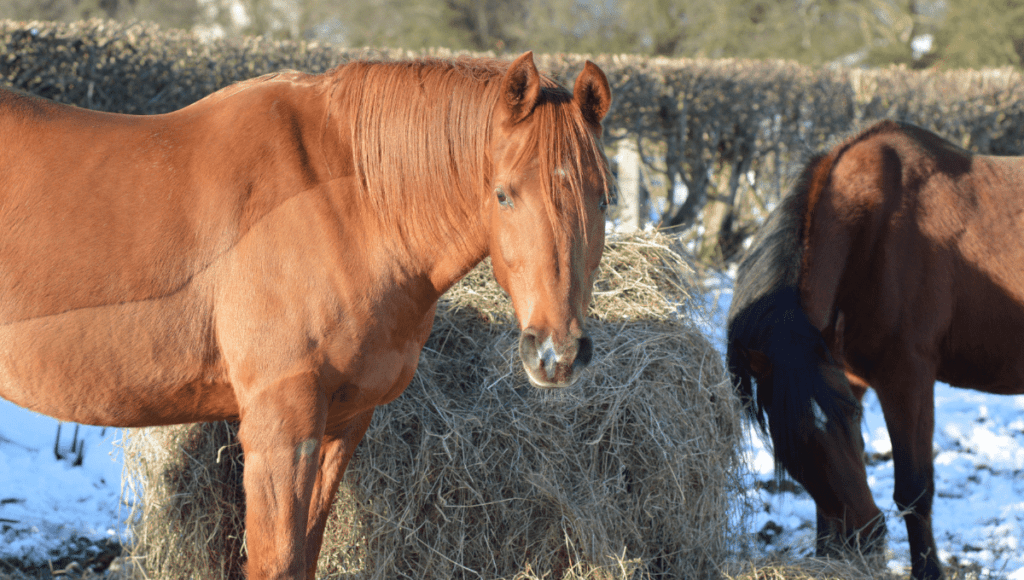In recent years, the equine world has seen a surge in interest around one particular area of health: the gut, Long overlooked or oversimplified, the horse’s digestive system is now being recognized as a key player in overall well-being, performance, immunity, and even behavior.
At the heart of this growing awareness lies the equine microbiome—the community of trillions of microbes that live inside a horse’s gut.
What once sounded like a complex, scientific niche is now turning into a practical consideration for every horse owner, trainer, and veterinarian. Understanding the gut and its microbiome isn’t just about avoiding colic or digestive upset anymore—it’s about supporting a healthier, happier, more resilient horse from the inside out.
What Is the Equine Microbiome?
The equine microbiome refers to the diverse population of microorganisms living primarily in the horse’s hindgut. This includes bacteria, fungi, protozoa, and viruses, many of which play essential roles in digestion and nutrient absorption.
Unlike humans, who are omnivores, horses are hindgut fermenters—their large cecum and colon are responsible for breaking down fibrous plant material through fermentation. The microbes living there enable this process by digesting hay, grass, and other roughage into volatile fatty acids, which provide energy. Without these microbes, horses wouldn’t be able to efficiently extract nutrition from their forage-based diet.
Why Gut Health Is So Important
1. Digestion and Nutrient Absorption
A balanced gut microbiome supports optimal digestion and helps the horse absorb vital nutrients like B vitamins, minerals, and fatty acids. Disruption in this balance—due to stress, medication, or poor-quality feed—can reduce the efficiency of digestion and leave the horse vulnerable to weight loss, dull coat, or low energy levels.
2. Immunity
Over 70% of a horse’s immune system is connected to the gut. A healthy gut barrier prevents harmful pathogens from entering the bloodstream and helps regulate inflammatory responses. An imbalanced microbiome can compromise this barrier, leading to increased susceptibility to infections and chronic inflammation.
3. Behavior and Mood
There’s growing evidence in both human and animal studies that the gut-brain axis—the connection between the gut and the brain—plays a major role in mood and behavior. In horses, poor gut health has been linked to anxiety, irritability, and even “girthiness” or resistance to saddling.
4. Prevention of Colic and Ulcers
Digestive issues are one of the leading causes of veterinary emergencies in horses. A stable gut environment helps prevent gas buildup, impaction, and other causes of colic. Likewise, a balanced diet and stress-reducing routines can significantly lower the risk of gastric ulcers.
What Disrupts the Gut Microbiome?
Despite its importance, the equine gut microbiome is delicate and can be thrown off balance by several common practices:
- Abrupt changes in diet
- Overuse of antibiotics or dewormers
- High-grain, low-fiber diets
- Stress from travel, competition, or isolation
- Inconsistent feeding schedules
Each of these factors can disrupt microbial populations, potentially leading to digestive upset, poor performance, or behavioral issues.
Supporting a Healthy Gut: What You Can Do
Maintaining gut health isn’t complicated—it just requires consistency and awareness. Here are some science-backed tips to support your horse’s digestive system and microbiome:
1. Feed Forage First
Hay or pasture should make up the bulk of your horse’s diet. Long-stem fiber keeps the digestive tract moving and supports healthy fermentation in the hindgut. Limit grain or feed concentrates to only what is necessary based on workload.
2. Introduce Changes Slowly
Whether it’s switching hay types or adding a supplement, any dietary change should be done gradually over 7–10 days. This allows the gut microbes time to adapt.
3. Use Probiotics and Prebiotics Wisely
Probiotics (beneficial bacteria) and prebiotics (food for those bacteria) can help maintain microbial balance, especially during times of stress or recovery. Look for equine-specific products that have been tested and proven effective.
4. Reduce Stress
Emotional and physical stress can lead to a drop in good gut bacteria and increased risk of ulcers or colic. Ensure your horse gets regular turnout, socialization, and a predictable routine to minimize anxiety.
5. Regular Dental and Veterinary Care
Horses with dental issues can’t chew their food properly, which affects digestion. Likewise, regular veterinary checkups can catch early signs of digestive imbalance before they become serious.
The Future of Equine Gut Health
As research continues, veterinarians and equine nutritionists are exploring microbiome testing—using fecal samples to get a snapshot of a horse’s gut health. While not yet widespread or standardized, these tests offer exciting potential for personalized nutrition and care.
We’re entering an era where gut health is no longer a side note—it’s central to responsible horse management. With better understanding and tools, owners now have more power than ever to help their horses thrive, not just survive.
Final Thoughts
The equine gut is a powerhouse, influencing far more than digestion. It affects mood, immunity, energy levels, and the horse’s ability to handle stress. By caring for the gut and supporting a thriving microbiome, you’re investing in your horse’s long-term well-being—one scoop of hay at a time.




